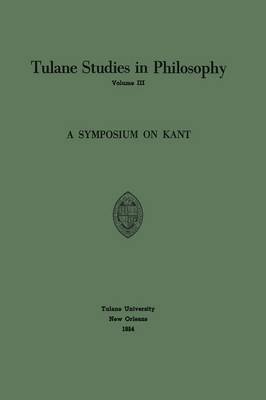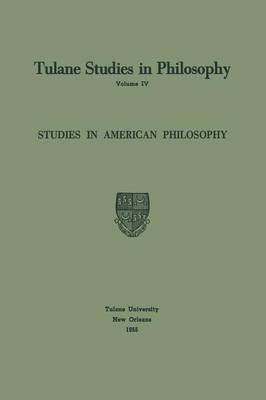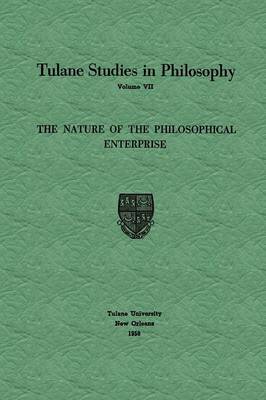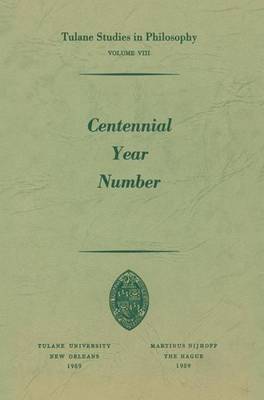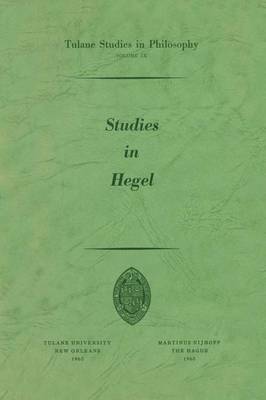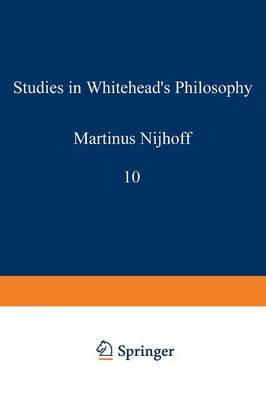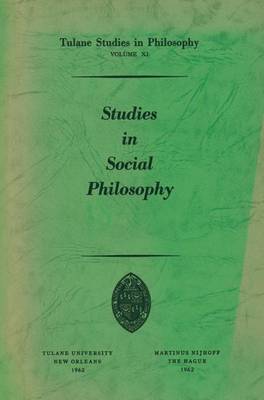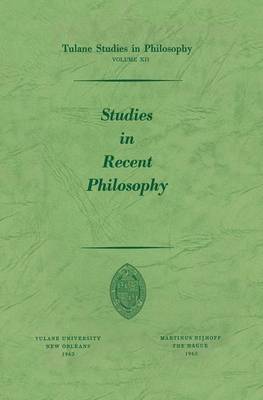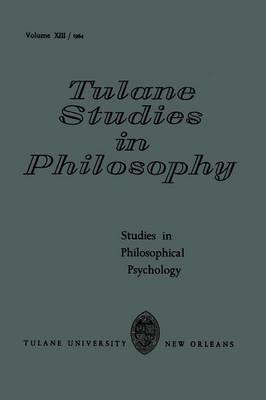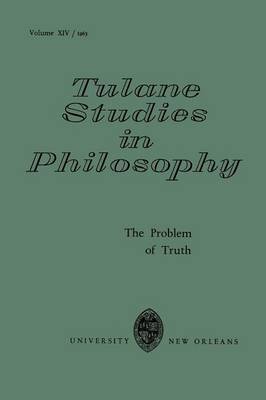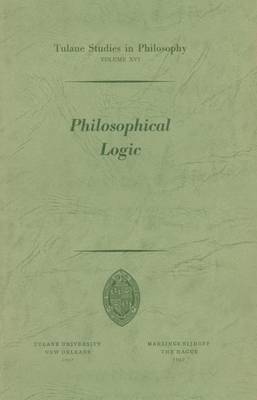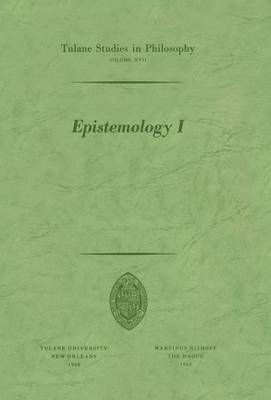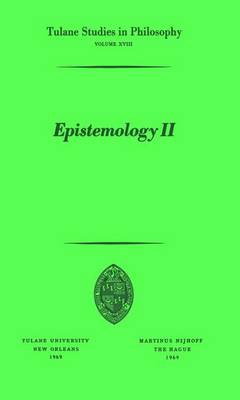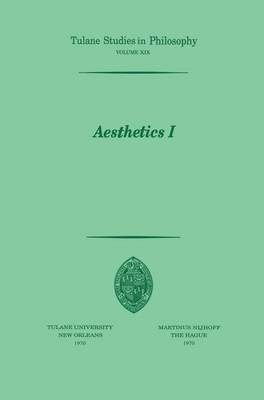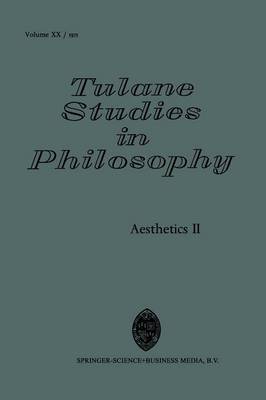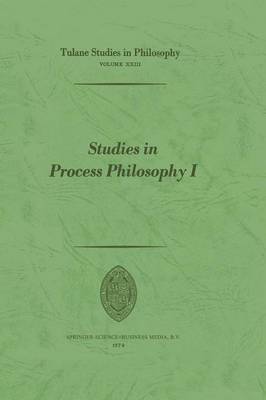Tulane Studies in Philosophy
16 primary works
Book 3
A Symposium on Kant
by Edward G Ballard, Richard L. Barber, James Kern Feibleman, Carl H. Hamburg, Harold N. Lee, Louise Nisbet Roberts, and Robert C. Whittemore
Book 4
Studies in American Philosophy
by Edward G Ballard, James Kern Feibleman, Richard L. Barber, Carl H. Hamburg, Harold N. Lee, Louise Nisbet Roberts, and Robert C. Whittemore
Book 7
The Nature of the Philosophical Enterprise
by Edward G Ballard, Richard L. Barber, James Kern Feibleman, Harold N. Lee, Paul Guerrant Morrison, Andrew J. Reck, Louise Nisbet Roberts, and Robert C. Whittemore
Book 8
Centennial Year Number
by James K Feibleman, Paul G. Morrison, Andrew J. Reck, Harold N. Lee, Edward G Ballard, Richard L. Barber, Carl H. Hamburg, and Robert C. Whittemore
Book 9
Studies in Hegel
by Alan B. Brinkley, James K Feibleman, Mitchell Franklin, Paul G. Morrison, Andrew J. Reck, Robert C. Whittemore, and Edward G Ballard
Book 10
Studies in Whitehead’s Philosophy
by Edward G Ballard, Alan B. Brinkley, Ramona T. Cormier, Harold N. Lee, Stephen C Pepper, Andrew J. Reck, and Robert C. Whittemore
Book 11
Studies in Social Philosophy
by Edward G Ballard, James K Feibleman, Paul G. Morrison, Andrew J. Reck, and Robert C. Whittemore
Book 12
Studies in Recent Philosophy
by Andrew J. Reck, Harold N. Lee, Carl H. Hamburg, Louise Nisbet Roberts, James K Feibleman, and Edward G Ballard
Book 13
Studies in Philosophical Psychology
by James Kern Feibleman, Harold N. Lee, Donald S. Lee, Shannon Bose, Edward G Ballard, Robert C. Whittemore, and Andrew J. Reck
Book 14
The Problem of Truth
by Edward G Ballard, Shannon Dubose, James Kern Feibleman, Donald S. Lee, and Harold N. Lee
Book 16
Philosophical Logic
by Robert L. Arrington, Peter M. Burkholder, Shannon Dubose, James W. Dye, James K Feibleman, Bertrand P. Helm, Max Hocutt, Harold N. Lee, Louise N. Roberts, and John C. Sallis
Book 17
Epistemology I
by Peter M. Burkholder, Shannon Dubose, James Wayne Dye, James K. Feiblemen, Max Hocutt, Donald S. Lee, Harold N. Lee, and Sandra B Rosenthal
Book 18
Epistemology II
by Ramona Cormier, James K Feibleman, Sidney A. Gross, Iredell Jenkins, J. F. Kern, Harold N. Lee, Marian L. Pauson, John C. Sallis, and Donald H. Weiss
Book 19
Aesthetics I
by Ramona Cormier, Shannon Dubose, James K Feibleman, John D. Glenn, Harold N. Lee, Marian L. Pauson, Louise N. Roberts, and John Sallis
Book 20
Aesthetics II
by Alan B. Brinkley, Peter M. Burkholder, Bernard P. Dauenhauer, James K Feibleman, Carol A. Kates, Sandra B Rosenthal, and James Leroy Smith
XXIII
